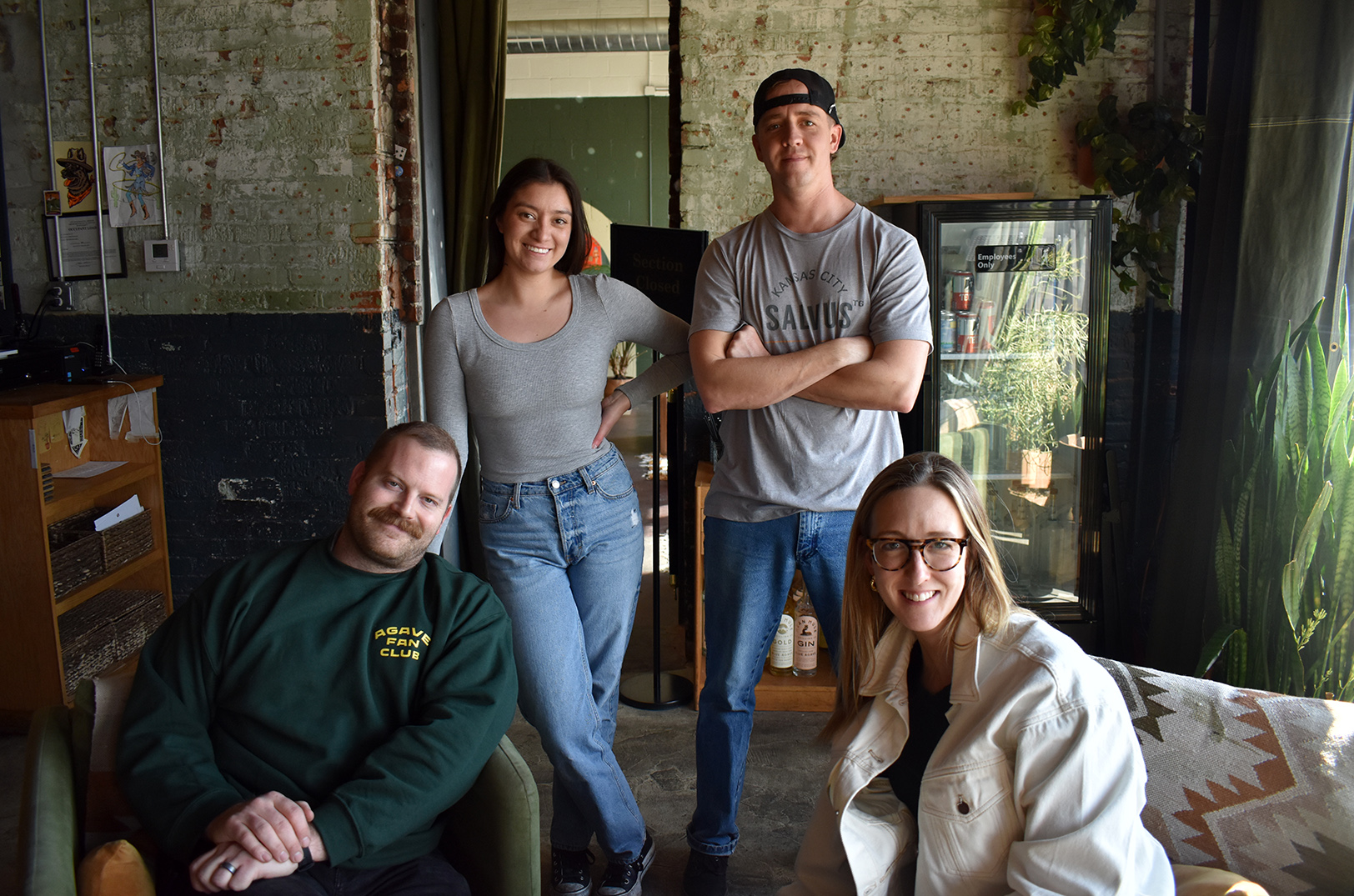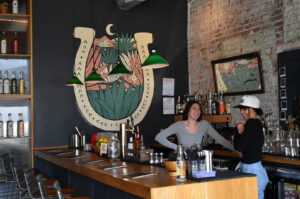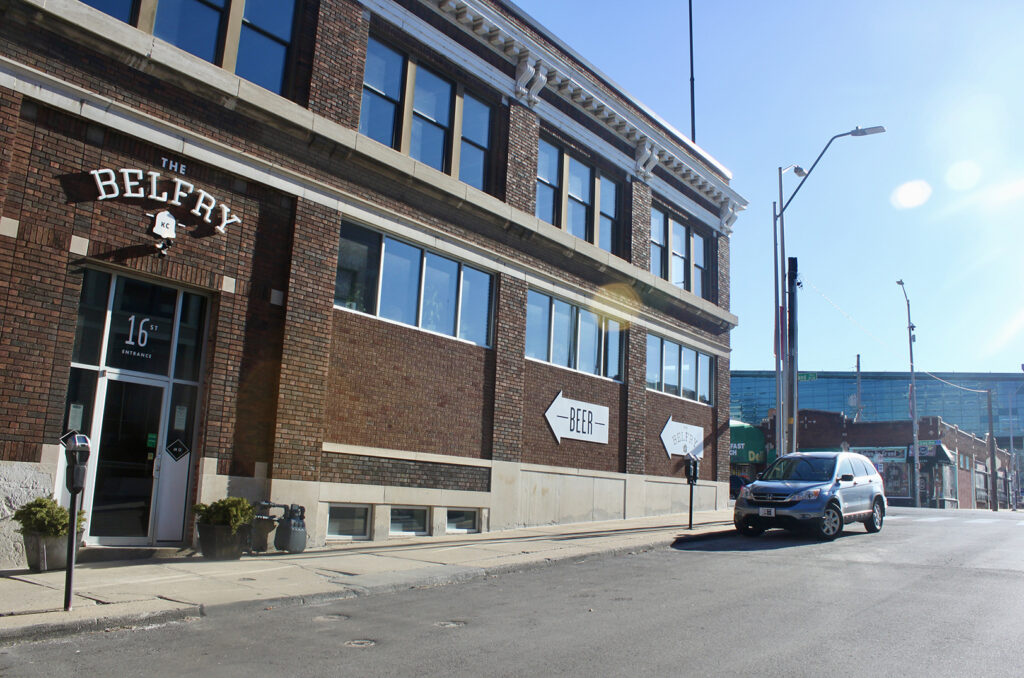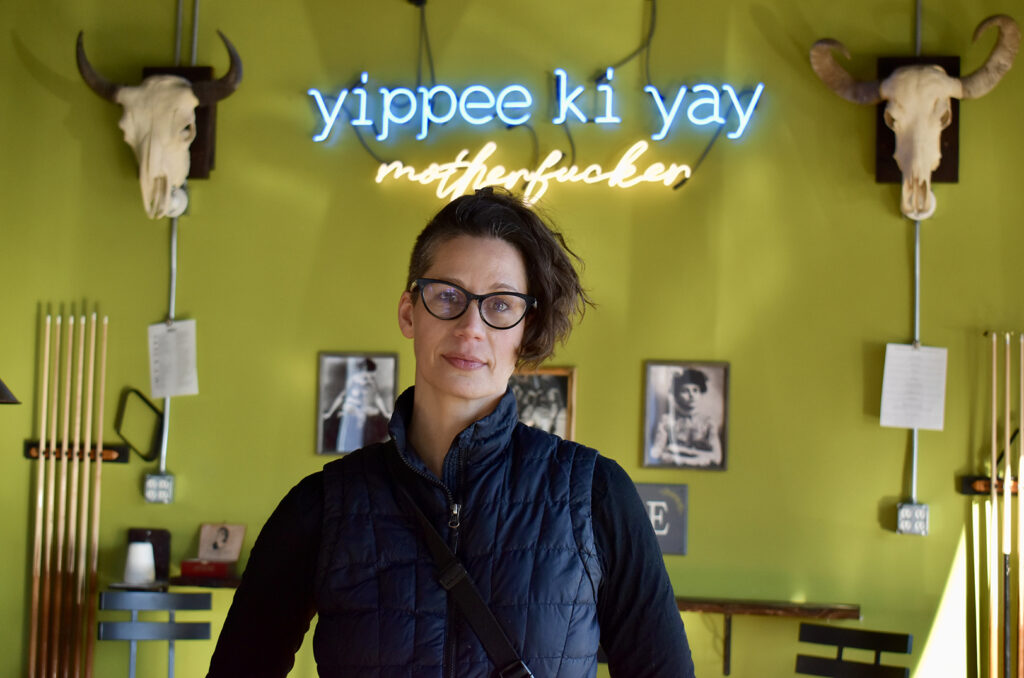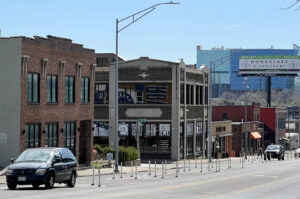It didn’t have to be this way, said Crossroads business owners, blaming Tuesday’s failed stadium sales tax initiative on what they viewed as a lack of transparency and legally binding agreements, too many last-minute deals and changes, and a disregard for community input.
Most, however, hope the conversation isn’t entirely finished.
Jackson County voters this week were tasked with deciding whether a 40-year, 3/8th-cent sales tax extension could be used to help the Kansas City Royals build a new ballpark in the East Crossroads, as well as cover some costs associated with an $800 million Chiefs renovation at Arrowhead Stadium.
The measure gained only 42 percent support — despite high-profile endorsements from influential civic and business leaders, and even sports stars Patrick Mahomes, Travis Kelce, Bobby Witt Jr., and Salvador Perez — with opponents like the team at Mean Mule Distilling celebrating the ballot box defeat as a “huge win” for small businesses sidelined by the Royals’ plans.
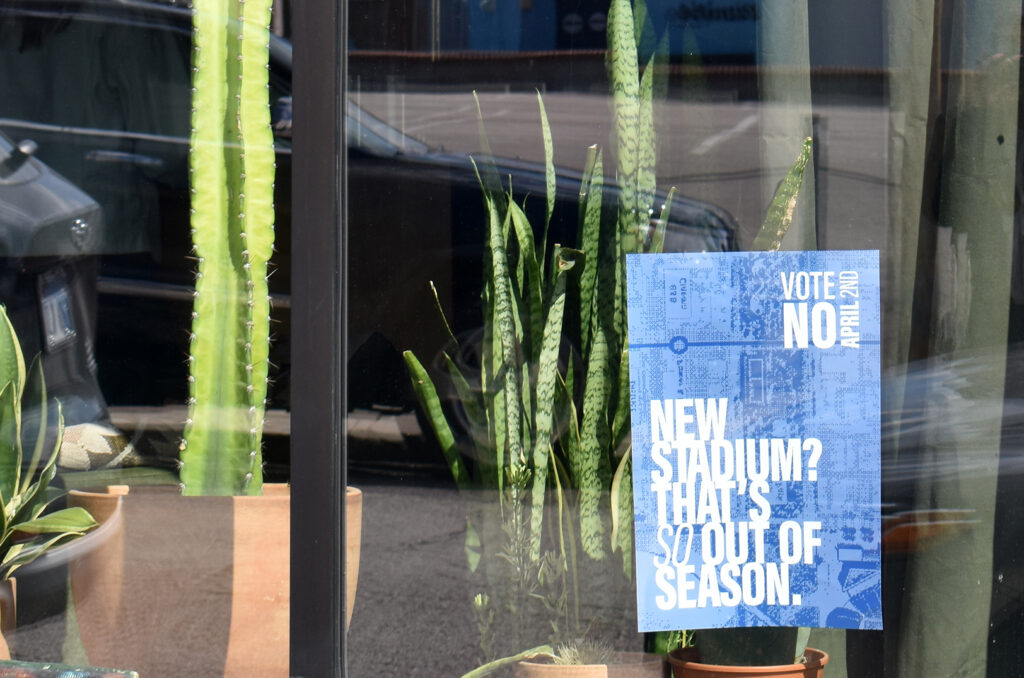
A ‘Vote No’ sign in the window of Mean Mule Distilling Co. in the Crossroads; photo by Taylor Wilmore, Startland News
“It’s just not very often that you go up against big money with millions of dollars in marketing and win,” said Meg Evans, co-owner of the East Crossroads’ Mean Mule Distilling Co. with her husband, Jeff Evans. “That was crazy, the fact that our community came together and we won was just, wow, it felt huge.”
In the wake of Tuesday’s vote, speculation is rampant about what the Royals and Chiefs might do next. The teams’ leases at the Truman Sports Complex run into 2031, but the organizations teased before the election that the outcome of the sales tax effort could determine how or if they move forward in the Kansas City market.
The Royals on Wednesday confirmed to Startland News that the team is exploring “all options” after the sales tax failure, echoing statements made in the runnup to the election.
“We’re deeply disappointed, as we are steadfast in our belief that Jackson County is far better off with the Chiefs and the Royals,” John Sherman, majority owner of the Royals said in public remarks after the vote. “We will take some time to reflect on and process the outcome, and find a path forward that works for the Royals and our fans.”
RELATED: Will Chiefs move to Kansas? Effort to lure team underway after failed Jackson County vote
Mayor Quinton Lucas said Royals and Chiefs fans in Jackson County rejected plans and processes they found inadequate, pledging to continue work to keep the teams.
“Over the months ahead, I look forward to working with the Chiefs and Royals to build a stronger, more open, and collaborative process that will ensure the teams, their events and investments remain in Kansas City for generations to come,” Lucas said.
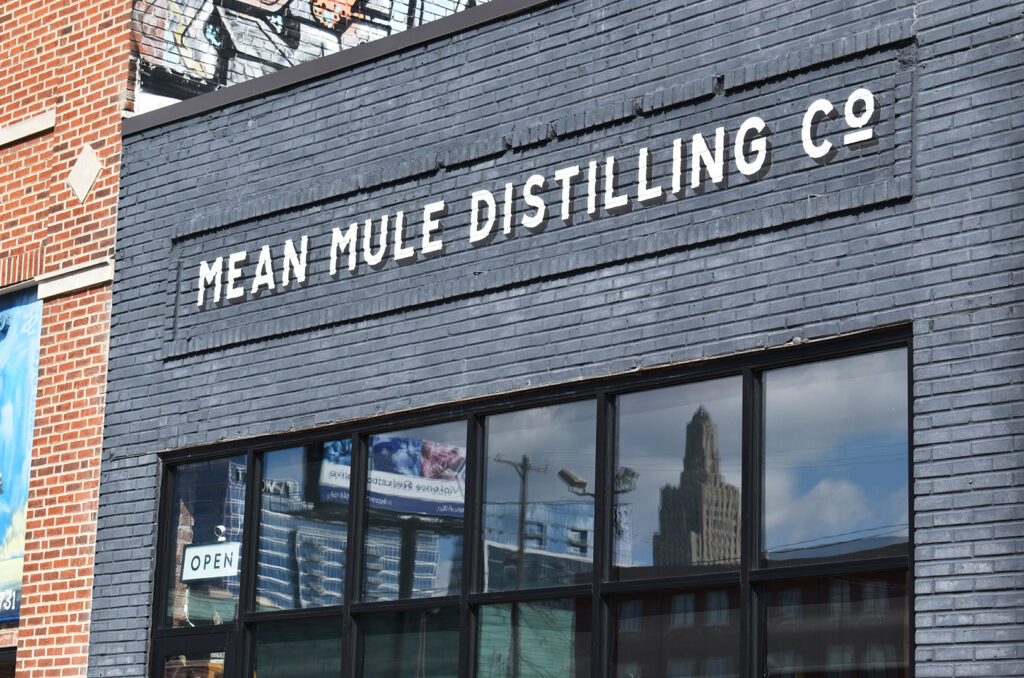
Mean Mule Distilling Co. sits in the Crossroads, reflecting a portion of the former Kansas City Star building, which would have been part of the primary footprint of the Kansas City Royals’ Crossroads baseball stadium; photo by Taylor Wilmore, Startland News
Moving the vote
The Mean Mule’s co-owners weren’t always against the Royals plans to relocate their stadium from the Truman Sports Complex to the downtown area. Their business sits less than a block out of the immediate footprint of the proposed ballpark and — after conversations and assurances about the positive impact the team’s arrival in 2028 could have on their distillery and cocktail bar — they initially were on board to vote “yes.”
Until they heard details were being changed behind the scenes, they said, noting businesses soured on the deal once it became clear new deals were quietly being struck.
The Evans learned on Monday, for example, that the Royals planned to sign an updated community benefits agreement with the Crossroads Community Association that removed legal protections for small businesses, they said, just as people were heading to the polls.
Crossroads Community Association and @Royals sign Agreement to address stadium proposal. Read the full Agreement here: https://t.co/YzkL2R4hBR pic.twitter.com/QBIc8TySbG
— KCCrossroads.org (@KCCrossroads) April 2, 2024
“It sounded like everything was greenlit on Friday, but on Monday, they pretty much did the standard corporate takeover, rug pull,” said Jeff Evans. “They led us on the whole time.”
Upset by the move and with their trust in the community negotiations broken, Mean Mule Distilling Co. shared a PSA about the updated community agreement on Instagram Monday, quickly gaining 300,000 views within two hours.
“I would say that probably moved the vote,” said Jeff Evans.
On First Friday this week, Mean Mule plans to celebrate the sales tax defeat with drinks for the Crossroads community and new merch for their supporters.
The Evans aren’t entirely closing the door to the Royals, the couple said; they remain open to future negotiation under the condition of transparent discussions regarding the impact on small businesses, including detailed parking plans and independent impact studies.
“I just feel like there was so much dishonesty that happened in the entire campaign,” said Jeff Evans. “For small businesses, this is our entire lives. At some point, it’s more than just business. It’s beyond personal. So I think they probably lost sight of that.”
RELATED: What the stadium tax defeat says about teams, their subsidies and Jackson County voters
Standing firm, demanding firm figures
When Celina Tio found out the results of Tuesday’s stadium tax vote, she felt relief.
“I had a pit in my stomach going into the day,” shared the James Beard award winning chef and owner of The Belfry, at 16th and Grand — just outside the footprint of the proposed East Crossroads stadium. “It was the only thing on my mind.”
“So much so, I forgot to Wordle,” she joked.
Tio — who is a Royals fan and former season ticket holder — said she and many others aren’t opposed to downtown baseball.
“I’d love to decide last minute to walk to a game from The Belfry,” she added, noting in a video message on Instagram that she supports a stadium in the East Village, immediately to the east of City Hall and the T-Mobile Center in downtown Kansas City.
(Potential ballpark sites in Kansas City’s East Village and North Kansas City had been narrowed down as the Royals’ sole finalists for their future stadium until late summer 2023, when the East Crossroads plan unexpectedly returned to the table as a viable option for the baseball club.)
“I certainly get that a sports team is great for us all, but it can be done transparently,” she continued.
Tio knows how much time, effort, and money went into building her business and “fan base” in the Crossroads, she said. The Royals’ apparent disregard for what she and others have developed in the arts district seemed inconceivable, she added.
“Who would even think that was OK?” Tio asked. “Did the Royals really want to work with business — not property — owners? Maybe, but they didn’t show that with any action. Several business owners were never contacted, so that tells me they weren’t really interested in working with the community.”
The “Yes” campaign seemed deliberately rushed to force people to vote with emotion and even fear related to the teams’ potential departures from Kansas City, Tio noted.
“(It was) not based on facts and a thought-out plan with legitimate studies and firm financial commitments with binding language, but with threats,” she voiced. “People don’t respond well to threats. I know I don’t.”
Moving forward, Tio said, she’s hoping the Royals better engage the community at large and come up with a plan that includes binding language, committing to remaining for the length of the lease, not doing it at the expense of other businesses that helped build this neighborhood, and to a firm financial commitment.
“If they are asking the taxpayers to help foot the bill, it needs to be a firm number that doesn’t change,” she added. “If costs go higher, that’s on them to make up the difference. That’s what any other business needs to do, so it’s only fair they do the same.”
‘Go back to the drawing board’
Entrepreneurs directly and indirectly impacted by the ballpark plan experienced a rollercoaster ride as plans and perceived commitments changed over the past few months, Jill Cockson detailed.
Her business, the Chartreuse Saloon at 17th and Oak streets, initially was said to be outside the proposed stadium’s footprint; then it was announced as being officially within the area to be demolished.
And with less than a week before Election Day, Mayor Lucas announced the Royals had agreed to a change that would prevent the closure of Oak Street as part of the plan — potentially saving businesses like Chartreuse Saloon and Green Dirt Farm, but without any concrete certainty.
Cockson, already a vocal leader of the “Vote No” campaign, said she was pleased to be a part of a community that sent a message to the Royals that the East Crossroads was altogether the wrong place for the new stadium.
“I was really proud that Jackson County voters showed up to support that this wasn’t handled at all with good faith and transparency,” she continued. “They should just go back to the drawing board and come back with a better plan.”
Next steps, Cockson noted, will involve creating a stronger East Crossroads Small Business Association.
“We will work to strengthen the neighborhood with some protections that will make it even harder for predatory development to occur,” she said.
“If we’ve learned anything from this, it’s that our neighborhoods aren’t safe,” Cockson said. “If billionaires and politicians can just stand and make an announcement that they’re going to destroy an entire neighborhood and paralyze that neighborhood with classic land grab tactics, we need to do some work to shore up our neighborhood and make it more safe from future attempts at this.”





